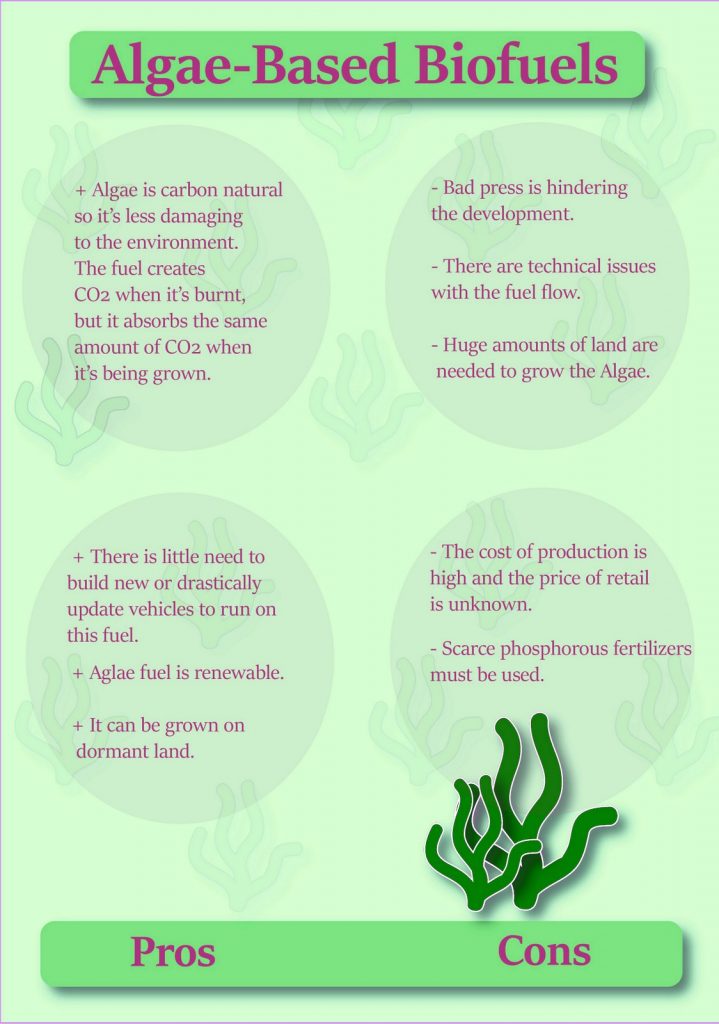An Update on a Really Green Fuel
Many environmentally-conscious drivers are likely to have heard the term “algae-based biofuels” used with much excitement even though this type of renewable fuel has gone widely uncovered in mainstream media.
Among innovators and future thinkers, the potential of algal fuel cannot go unnoticed. We have also seen the popularity of this concept amongst industry and governments, with many investing huge sums in the development of this potential petroleum replacement.
In this article we will present some of the exciting possibilities and benefits of algal fuels. We will also take the opportunity to explore some of the challenges which must be overcome to make this innovative automotive technology a reality. Finally, we will assess the real potential of seeing this type of fuel working commercially in the coming years.
Environmental Benefits
The major reason so many people are excited about the possibility of algae-based fuels are the benefits that they can bring to the environment. The technologies that are being developed in this area are essentially carbon neutral, which means they are significantly less damaging to the environment than traditional fuels. Although the fuel does create CO2 when it is burned, it absorbs the same amount of CO2 when it is being grown, cancelling out any addition of harmful emissions to the atmosphere.

This type of fuel is also renewable, meaning, unlike petrol or diesel, there is little concern of us eventually running out of this source of energy. Finally, it is eco-friendly because all waste products from the growing process, including CO2 and waste water, can be used elsewhere as nutrients.
Technical and Commercial Benefits
Technically, algae-based fuels are very popular as they allow for direct replacement of many petroleum-based products. This means that, unlike the majority of other potential vehicle energy innovations such as solar power, there will be no or little need to build new or drastically update vehicles to run off this high-tech fuel. This means we will likely see little push back from consumers on adopting the technology as long as there is little effort or cost on their part.
From a commercial standpoint the creation process may open the door for many opportunities. For example, the algae that is grown for the fuel can be grown on dormant land that is unsuitable to host other types of agriculture. Due to a higher energy per-acre yield compared to other biofuels and the ability to massively scale this production, it also offers a huge financial opportunity for many.
Slow Advancements and Commercial Issues
But there are many concerns around the development of this fuel technology, and there has been a lot of bad press around the slow advancements when compared to the promises made in recent years.
The industry saw claims in mainstream media boasting that algae biofuel capacity would reach 1 billion gallons by 2014, and that it would be competitively priced by 2012. Needless to say, these targets were not met, meaning that advancements have not continued at the rate as were once expected.
This type of bad press might be hindering the development as it will likely limit investments into the area in the coming years. It also means that other competing technologies may seize the funding, allowing them to become commercially viable a lot quicker.
We are still seeing a high cost of production and a lot of confusion over how much the fuel could realistically be retailed at.
Technical Issues
There are a number of technical issues that need remedies before the solution is widely adopted. Scientists are still working on issues such as how well the liquid flows through the engine before it becomes warm.
The growing process is another problematic question. For example, the use of phosphorus fertilizers, which are becoming increasingly scarce, raise concerns. Algae also need to be grown under a certain temperature and require a considerable amount of land when compared to fossil fuels, which are found underground, and often under the sea (so take up smaller land areas).
Although these are clearly some commercial and technical issues with algae-based biofuels, many of these will be remedied by their benefits. For example, some simple technological advancements should limit issues with fertilizers and temperature control. Although mass land is required, given the ability to use that which is unsuitable for other crops, there is great flexibility to where these sites will be located. In terms of social acceptance, we will likely see quick adoption of this type of biofuel once it is commercially viable. Without a doubt, it would easily fit into our everyday lives.
